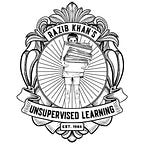Today the Supreme Court ended affirmative action when it comes to university admissions as we know it. Anticipating this decision, Razib recorded a conversation with Renu Mukherjee a few months back. But today they also added a timely prologue reflecting on the decision, which shook out exactly as she expected (also see her report, Friends of the Court? Advocacy Groups as Amici in Students for Fair Admissions).
Mukherjee is a Paulson Policy Analyst at the Manhattan Institute and a Ph.D. student in American politics at Boston College, where her dissertation will focus on affirmative action. Razib asks Mukherjee to discuss the origin of affirmative action as it is practiced in the US today, starting with the Bakke decision in 1978, and then moving on to Grutter vs. Bollinger in 2003. She then moves to the details of the current cases, in particular Students for Fair Admissions Inc. v. President & Fellows of Harvard College, where the plaintiffs assert that Harvard University discriminates against Asian Americans in admissions, and engages in “racial balancing.”
Razib and Mukherjee then explore the implications of the decision. Razib wonders about the implication for Harvard in particular, which is, to great extent, the finishing school of the American ruling class. Is Harvard’s mission sustainable if 40% of the student body is Asian American? Mukherjee points out that these demographic trends, the rise of Asian Americans proportionally and the decline of historically represented groups, have been occurring despite affirmative action, for example, the decline of Jewish Americans in the Ivy League over the last generation. Additionally, both Razib and Mukherjee agree universities are certain to engage in both evasion and massive resistance to the ruling. Mukherjee argues that the current moves against standardized testing anticipate the program of evasion that we can expect in the future, where holistic admissions can allow the administrators’ preferences to continue.
Note: Today we also released another podcast on Muslims and their recent confrontations with the LGBTQIA+ movement with Sarah Haider of A Special Place in Hell (and her own Substack), Shadi Hamid of the Brookings Institute (and Wisdom of the Crowds and his own Substack) and Murtaza Hussain of The Intercept (and his own Substack).












